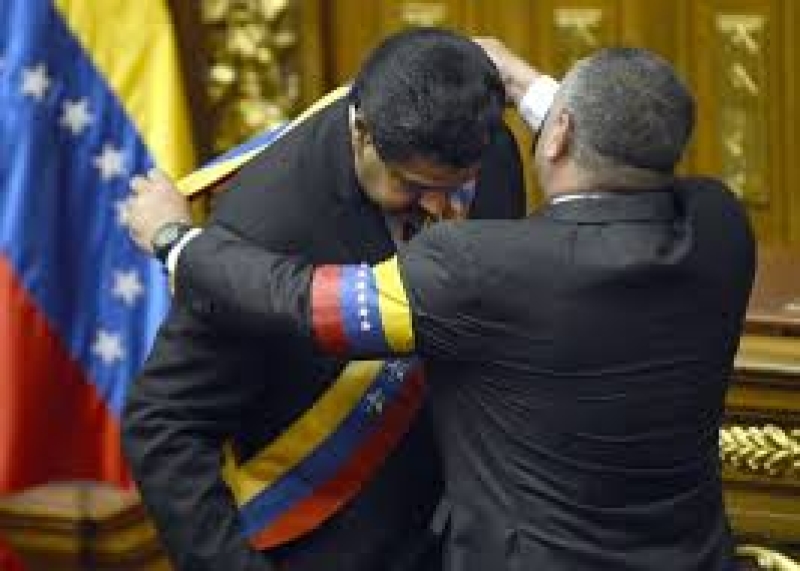- Human Rights Record ‘Alarming’ Over 17 Months, Says HRSS |
- Tarique Warns of Deep Plot, Urges Vigilance Nationwide |
- Son of late ruler Gadhafi is killed in Libya |
- Special prayers, foods, charity mark Shab-e-Barat in Old Dhaka |
- Exiled Awami League Leaders Plan Political Comeback from India |
Venezuela's Maduro Sworn in as President Amid Int'l Backlash

Venezuelan President Nicolás Maduro was sworn in on Friday for his third consecutive six-year term, following his controversial victory in last year's disputed election. The oath-taking ceremony, held in parliament, was marked by defiant remarks from Maduro, who declared his next term would focus on "peace."
"Say what you want, do what you must, but this constitutional investiture could not be stopped and is a great victory of democracy in Venezuela," Maduro stated as he took the oath.
His swearing-in comes amid rising domestic unrest, with frequent protests against his leadership. Just a day earlier, opposition leader María Corina Machado was briefly detained during a demonstration.
International condemnation has poured in, with the US, Spain, the European Parliament, and others declaring Maduro's re-election illegitimate. They have instead recognized exiled opposition candidate Edmundo González Urrutia as the rightful president-elect.
Opposition groups have accused Maduro of orchestrating a "coup d'etat" since the July 28 election. The Democratic Unitary Platform coalition, which includes various opposition factions, condemned the re-election as a result of "brute force," dismissing the official results as fraudulent.
Thursday's protests saw Machado, who had been in hiding since August due to a government crackdown, briefly detained. Her political movement, Vente Venezuela, reported gunfire during the protest, with Machado being knocked off her motorcycle as she fled. After her release, she expressed renewed resolve to continue fighting against Maduro's government.
González, who had previously declared plans to return to Venezuela for his own swearing-in, was unable to do so due to an arrest warrant and a $100,000 bounty on his head. Maduro’s administration, which controls security forces, appears to have quashed any attempts at opposition-led action.
As Maduro took the oath, Western nations imposed additional sanctions on his government. The US increased its reward for his arrest to $25 million and imposed sanctions on eight Venezuelan officials, including new figures like Hector Obregon, head of state oil company PDVSA, and Transport Minister Ramon Velasquez.
The UK followed suit, sanctioning 15 individuals linked to Maduro’s regime. Foreign Secretary David Lammy called Maduro’s claim to power "fraudulent," echoing widespread international concerns over the legitimacy of the July election. Meanwhile, the European Union expanded its sanctions list by 15 individuals, bringing the total to 69, including members of the electoral council, judiciary, and security forces.
Despite the international backlash, Maduro’s government maintains he won the election, though it has refused to release detailed vote tallies, further fueling accusations of electoral fraud. Opposition figures insist that unofficial tallies they’ve released demonstrate the official results cannot be correct.

